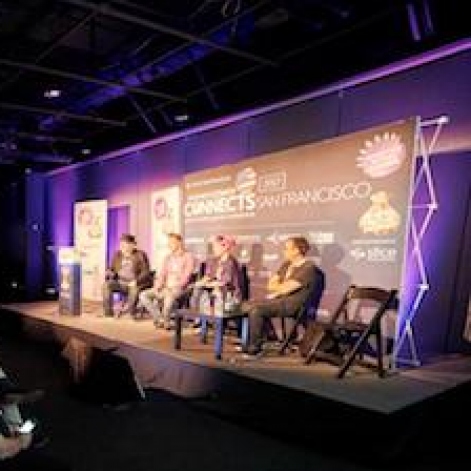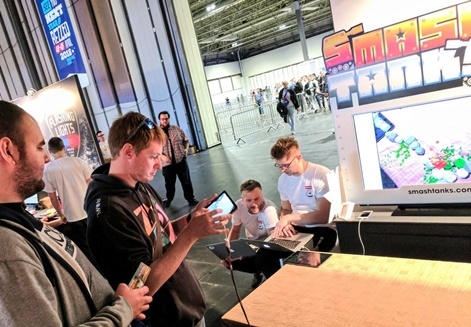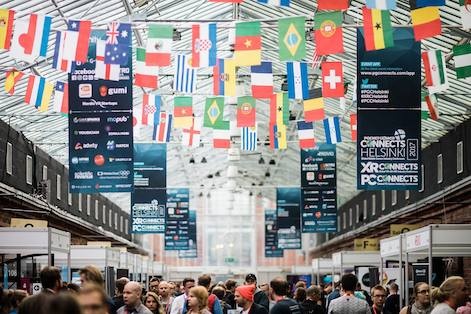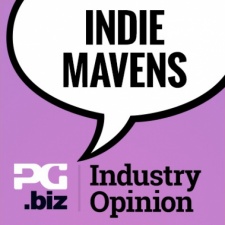The sight of the spring and summer months on the games industry calendar usually means one thing, events! And lots of them. (Well actually, every week does, but still).
Some cater for specific games platforms and some are more directed at either developers, consumers or both.
While many developers attend different events and conferences for a variety of reasons, often the reasons for attending events are to promote a new game, network and make new connections that could help you later on, or just learn about the latest industry trends and insights.
To help you make the most of games industry events, we reached out to our Indie Mavens to find out their dos and don’ts.
Specifically, we asked them:
How do you make the most out of going to events as an indie?
What kinds of events are most worthwhile for you as an indie developer?
If I’m going to an event, it’ll usually be to try and gather technical knowledge. As we’re only a two-man team, that can be a challenge at a bigger, technical event where a lot of the talks I want to get information from are in parallel tracks.
So, if it’s one we’re both attending, then Adam will often do ones I can’t be in to gather data (even though he’s primarily an artist/musician, he knows enough about coding now to know what’s likely to be interesting to take notes on).
Rule of thumb, if you can all get there (or have other friendly devs attending) organising together in advance what tracks you all attend and what data you’re gathering can be pretty useful.
As to what events, that’s where I tend to be a bit picky. I tend towards more local events due to cost both in money and the time an event takes.

I find if I end up travelling to the US for an event then that’s a week or so lost to me after I get back. When we were working with a publishing partner, we tended to do more overseas events as costs were covered and it was more useful to meet up with them, but since then I’ve tended to avoid anything involving a lot of travel.
Cost is a major factor in event choice. When you’re struggling to keep the team above the breadline an event that charges £1,500 a head just to attend, before you’ve factored in expensive city hotels and flights, is generally a no-go.
The exception being if you’re definitely getting some sort of critical info or meeting someone who’s going to be doing major things for the business.
Cost is a major factor in event choice.Aaron Fothergill
I’ve been to WWDC in the past as the chance to have one to ones with Apple engineers and get the latest technical info was ideal at the time, but I managed to get super cheap flights and stayed in a (very dodgy) motel over 10 blocks away from the centre.
More useful events for us have been the localised technical events Apple held in London (free invite, no hotel needed and direct access to engineers, marketing and producers) as well as ones like the London Unity Userground (LUUG) meetups that are held every month.
Of course, the real reason most of us indies end up enjoying events is meeting other developers. In theory, the internet means we’re all networking away on forums, Facebook and all that, but in reality it’s always a lot more fun it’s an actual get together.
How do you make the most out of going to events as an indie?
At Dumpling, our reason for doing any event is usually driven by play-testing and our ability to directly respond and iterate with a live crowd.
For instance, we first demoed AR Smash Tanks! at EGX last September. By the end of those four (long) days we’d locked down what the game was going to be, found solutions to encourage augmented reality technology via play and established pacing and verticality in levels, all through observing and iterating on the show floor.
Our reason for doing any event is usually driven by play-testing and our ability to directly respond and iterate with a live crowd.Travis Ryan
I think the way we demo is a bit different. I’ve had devs ask why we observe players from so far away, rather than initially engaging with them.
It’s intentional, and we’re looking for honest feedback on every aspect a game; what attracts players and who, what’s their first interaction, how are they translate game mechanics, how they communicate and encourage their friends and so on.
When you release a game into the wild, you don’t come packaged with it to handhold them, so it’s important to observe those same reactions with any playtest.
Of course, we’re not monsters, we’ll pop over for a chat once they’ve had some time with the game, but capturing those honest first moments is crucial for us.
As we’re knee-deep in developing at events, we don’t get to do much ‘networking’ (plus, we’re awfully shy).
Something we could perhaps do better and advise other devs, is to consider engaging press and outlets well in advance of events and try to arrange some dedicated time to talk and show your games - we’ve been lucky in that press usually find us, but honestly I really wish we were better prepared for it
What kind of events are most worthwhile for you as an indie developer?
For us, it’s gamer-driven events. The more public facing and diverse the audience, the better.
During the last three months of 2017, we playtested at EGX, Play Expo, Yorkshire Games Festival and a bunch of smaller local events too, each brings a different audience and gave us a different dev focus.

EGX has a very core crowd - anyone demoing mobile games at these events knows how difficult it can be (“why are phone games here”), so imagine how tough it is to demo an ‘invisible AR game’ on an 'empty table’ - here we focused on game mechanics and detail.
Yorkshire Games Festival is a very young, family crowd and really allowed us to stress-test the clarity and durability of the game (almost gave Jared, our engineer, a nervous breakdown ).
Play EXPO was somewhere in between, and here we developed and tested the games ‘Pass-&-Play’ one device multiplayer mode.
Along these lines, Rezzed and Insomnia events, along with the myriad Comic-Con events up-and-down the country, offer plenty of opportunities to get your games in front of eager players.
Outside of playtesting, I enjoy talking at events such as PG Connects London and Digital Dragons in Poland, it’s a good way to share how we stumbled into becoming ‘pioneering AR game creators’ and our general approach and advice on designing in this space and receiving feedback in return.
I honestly don't attend a lot of events. And most of them are based in France.
Most important one for me is Game Connection Europe, during Paris Games Week. It's always a nice opportunity to meet others studios and publishers from all around the world and negotiate interesting deals.

As Zero Games is mostly a work-for-hire studio, Game Connection Europe is vital to find new partners to work with.
Big events are expensive for a small company like us, so there's a bit of pressure if I attend them as I must not fail in my mission to secure deals.
We also attend sometimes some minor local French events, mostly to show our future games and take some feedback from visitors.
You can find plenty of articles with details about the logistics of showing well - booth design, postcards, etcetera. However, I think the biggest question more indies should ask themselves is what they're trying to accomplish at that show.
I think the biggest question more indies should ask themselves is what they're trying to accomplish at that show.Tanya X. Short
- Do you want more customers to buy the game?
- Do you want to improve the game's first impression?
- Do you want to get console publishing permission?
- Do you want to pitch to publishers?
- Do you want to practice your marketing tagine and see how it sticks?
Prioritizs then strategise accordingly. All of these goals can be pursued concurrently of course, but for Kitfox for example, we do not use shows for playtesting because those methods would interfere with our marketing practice and we find other circumstances better for testing anyway.
Long story short, every team's needs are different and it's important to know why you're jumping into this giant expenditure of time and effort, never just follow the steps someone else wrote.
Get the latest news, interviews and in-depth analysis on Twitter, Facebook and our daily newsletter.


























